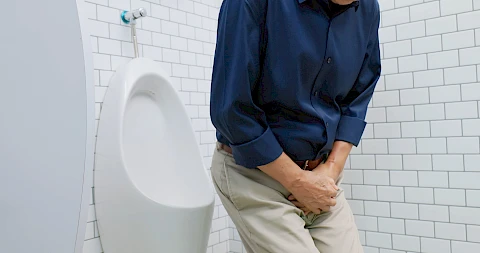
November marks Bladder Health Month. It is a time dedicated to raising awareness about bladder health issues and how to maintain its function. Older adults can experience incontinence and discomfort due to age-related changes in how the bladder functions. Understanding these challenges will allow you to effectively support senior loved ones, maintaining their well-being and comfort every day.
All About Senior Bladder Health
Our bodies undergo various changes with age, and the bladder is no exception. Common bladder issues among seniors include urinary incontinence, overactive bladder, and urinary tract infections, which can affect daily life. These conditions can lead to frequent bathroom trips, accidents, or discomfort, but they are not an inevitable part of aging. With proper management, seniors can maintain better bladder health and improve their overall well-being.
Ensure Adequate Hydration
Seniors might limit fluid intake to reduce bathroom trips or because they do not feel thirsty. However, proper hydration is crucial for bladder health. Remind them that balanced hydration can prevent infections and keep the bladder functioning well.
Encourage seniors to drink adequate fluids throughout the day. Offer water-rich foods like fruits and soups and set a schedule for regular hydration. Remember to balance their fluid intake and avoid large amounts before bedtime to avoid nighttime disruptions.
Encourage Regular Bathroom Breaks
Routine bathroom breaks can prevent discomfort and accidents. Establish a schedule to remind seniors to visit the bathroom every few hours. This habit provides predictability and helps manage bladder health. Work on recognizing when a senior needs to use the bathroom. Watch for signs like fidgeting or verbal cues. Consider installing grab bars and ensuring clear pathways to make bathroom trips easier.
Manage Incontinence
Incontinence, the inability to control bladder or bowel functions, can be distressing to seniors. Learn the different types, such as stress incontinence, urge incontinence, and overflow incontinence, to tailor the care and support you provide.
Engage senior loved ones in conversations about their experiences and focus on solutions rather than the problem. Consider introducing products designed to maintain dignity, like discreet incontinence pads or absorbent underwear. These aids can make seniors feel more comfortable and confident and minimize the emotional impact.
Practice Open Communication
Bladder health can be a sensitive topic, but open communication is essential. Approach discussions with empathy and understanding. Encourage seniors to express their concerns without embarrassment. Remind them they’re not alone, and reassure them that support is available. Family involvement can also be beneficial. Seniors may feel more comfortable discussing personal topics with trusted family members.
Seek Medical Advice When Necessary
Changes in bladder habits, persistent discomfort, or signs of infection should prompt a consultation with a healthcare professional. Regular check-ups and screenings are vital for detecting problems early and preventing complications. Help seniors prepare for these appointments by preparing questions ahead of time. Pay attention to the medical instructions and ensure seniors follow any prescribed treatments or recommended lifestyle changes.
Manage Senior Bladder Health With Senior Helpers’ Hands-On Support
Taking steps to support senior bladder health can make a meaningful difference in your loved one’s comfort and well-being. Senior Helpers Bryan-College Station-TX offers compassionate, in-home senior care services designed to address their individual needs. If you need support caring for a senior loved one, including assistance with bathroom use, help with routines, support with daily living activities, and other aspects of senior care, we’re here to help. Contact us for personalized senior care and support in Bryan, Conroe, College Station, Montgomery, and Livingston.